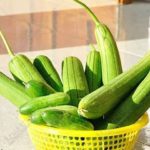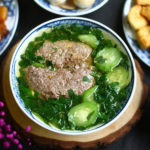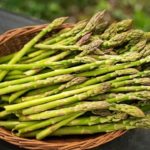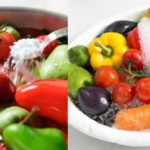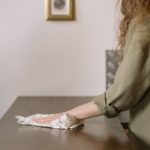Loofah
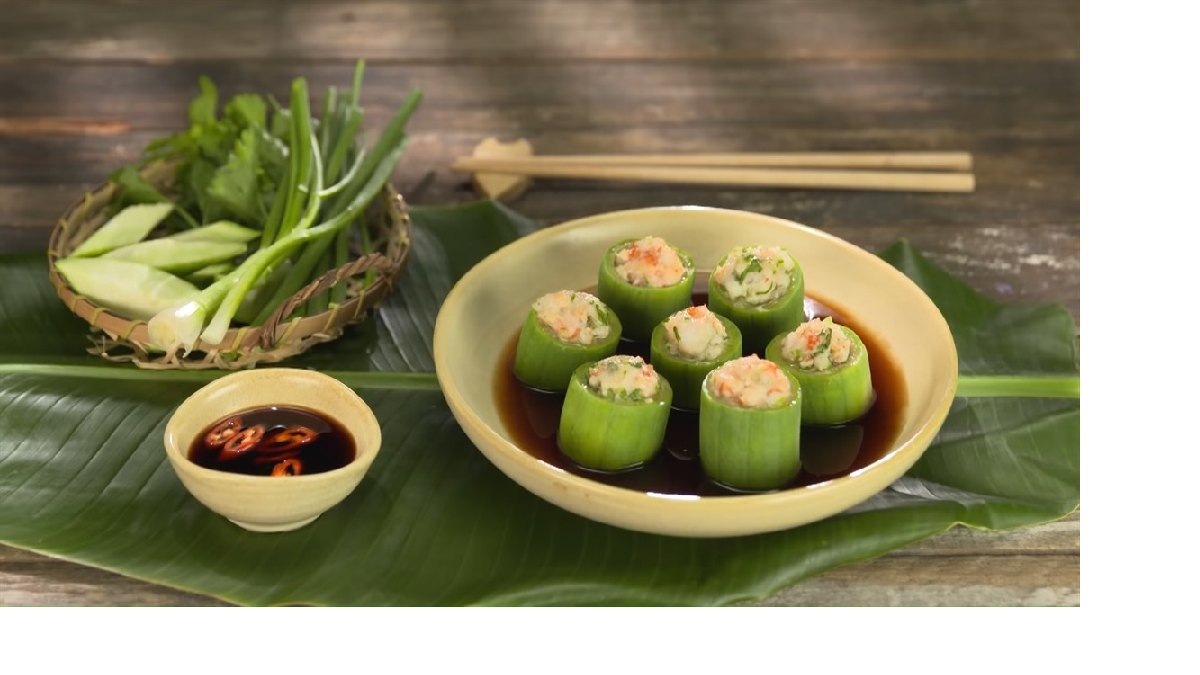
Loofah is a versatile ingredient used in many delicious dishes.
Loofah, or sponge gourd, is a highly nutritious food and a summer staple. It is naturally resistant to pests and can even inhibit their growth. Loofah vines are more challenging to spray with pesticides compared to other vegetables.
To select the best-tasting loofah, keep an eye out for these characteristics:
– Shape: Avoid choosing loofah that is too straight. Slightly curved loofah tends to have a more flavorful taste. Loofah is a natural vine plant, and its shape can be influenced by various natural factors such as sunlight, temperature, and fertilizer.
– Flower in the navel: While it is commonly believed that the presence of a flower indicates freshness, it is important to understand that as the loofah matures, the flower will eventually fall off. If the flower is still attached and feels firm, it may indicate the use of preservatives or growth stimulants, so it is best to avoid such produce.
– Color: Fresh loofah usually has a dark green or greenish-brown skin. Contrary to popular belief, lighter green loofah is not necessarily softer. Naturally grown loofah requires ample sunlight and tends to have a darker color.
– Skin texture: To select a tasty loofah, look for a slightly rough skin texture. If the skin feels coarse and bumpy, it is a sign of freshness. Smoother skin with deeper indentations suggests that the loofah is older and should be avoided. Additionally, gently pressing the loofah should result in a quick shape recovery, indicating freshness and high water content.
Winter Squash
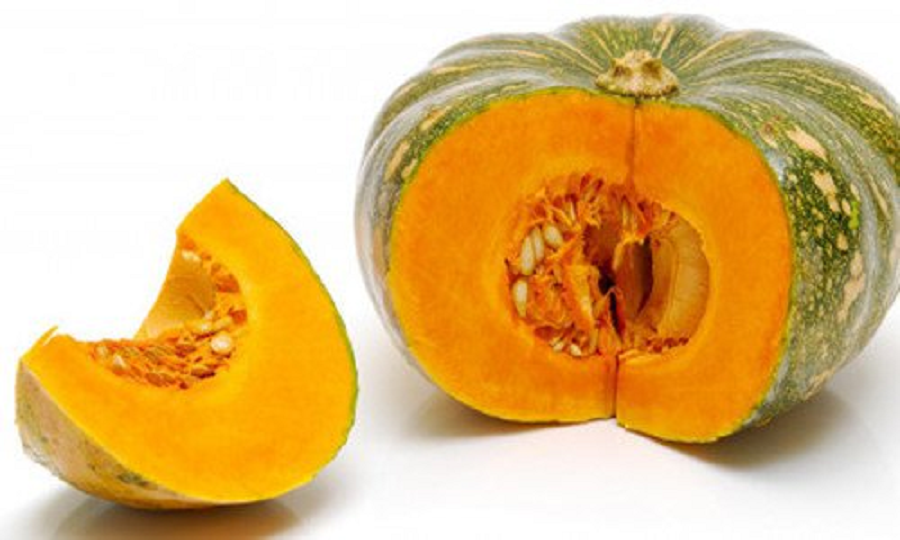
Winter squash has a sweet, nutty flavor and is packed with vitamins, fiber, and antioxidants, earning it the nickname “the golden vegetable.”
Winter squash, also known as pumpkin, has a robust root system that enables it to withstand and recover from pest attacks without the need for spraying.
– Color: When shopping for winter squash, look for a vibrant orange or yellow-orange color with a firm texture. Avoid squash with dull or faded skin.
– Fresh stem: Fresh winter squash typically has a 2-3 cm long stem that appears freshly cut, with a small amount of sap visible.
– Intact skin: Examine the skin for any cracks or bruises. A good winter squash will have smooth, unblemished skin and feel heavy for its size.
If you’re buying winter squash for storage, choose those with intact stems as they tend to have a longer shelf life.
For pre-cut winter squash pieces, opt for those with bright yellow or orange flesh and a dense texture, as these are indicators of quality and flavor.
|
Vegetables that grow on vines, such as loofah and winter squash, tend to have lower pesticide residue and less direct contact with fertilizer. However, early harvesting may result in residual pesticides on the produce. Here’s a helpful tip to ensure thorough cleaning: Soaking vegetables in salted water can effectively remove bacteria, dirt, and insect eggs. However, it is crucial to soak them for only a short period to avoid negative effects. According to experts, prolonged soaking can lead to the dissolution of pesticides into the water, which the vegetables may then reabsorb, resulting in increased contamination. Additionally, vegetables are rich in water-soluble vitamins like vitamin B, C, calcium, iron, and zinc, which can leech into the water during extended soaking, reducing their nutritional value. Research has shown that soaking vegetables for more than 15 minutes can result in a loss of up to 90% of vitamin C, and soaking for over 20 minutes can increase the levels of nitrites, a known carcinogen. Follow the same cleaning procedure for leafy vegetables. Avoid soaking vegetables in salted water before storing them in the refrigerator, as this can cause them to become waterlogged. |
Source: The Messenger
























